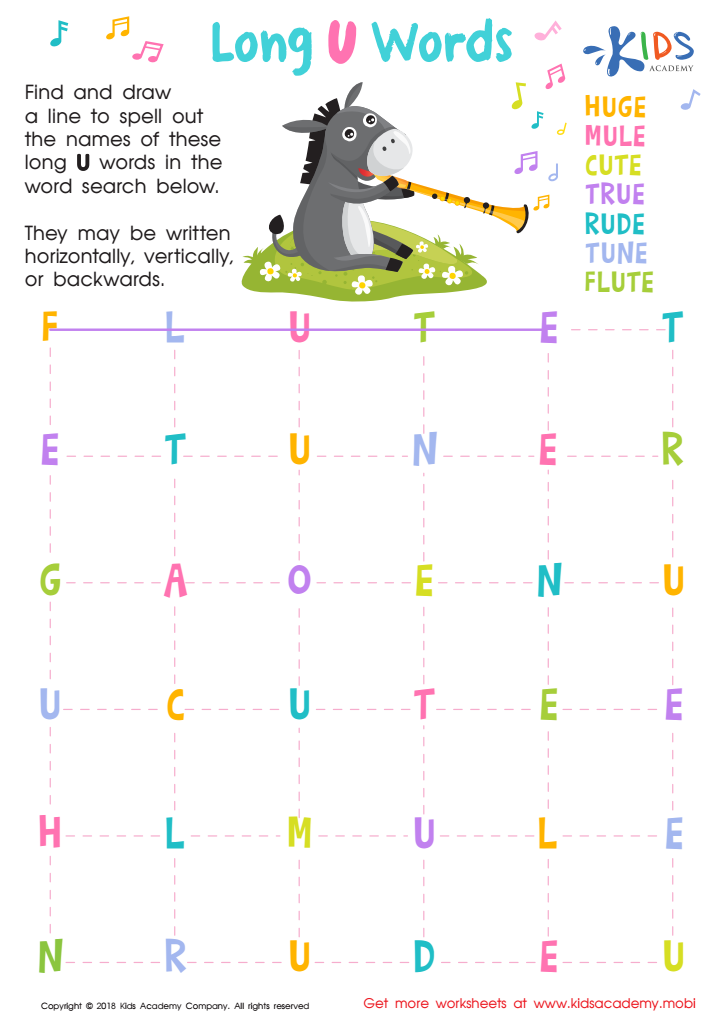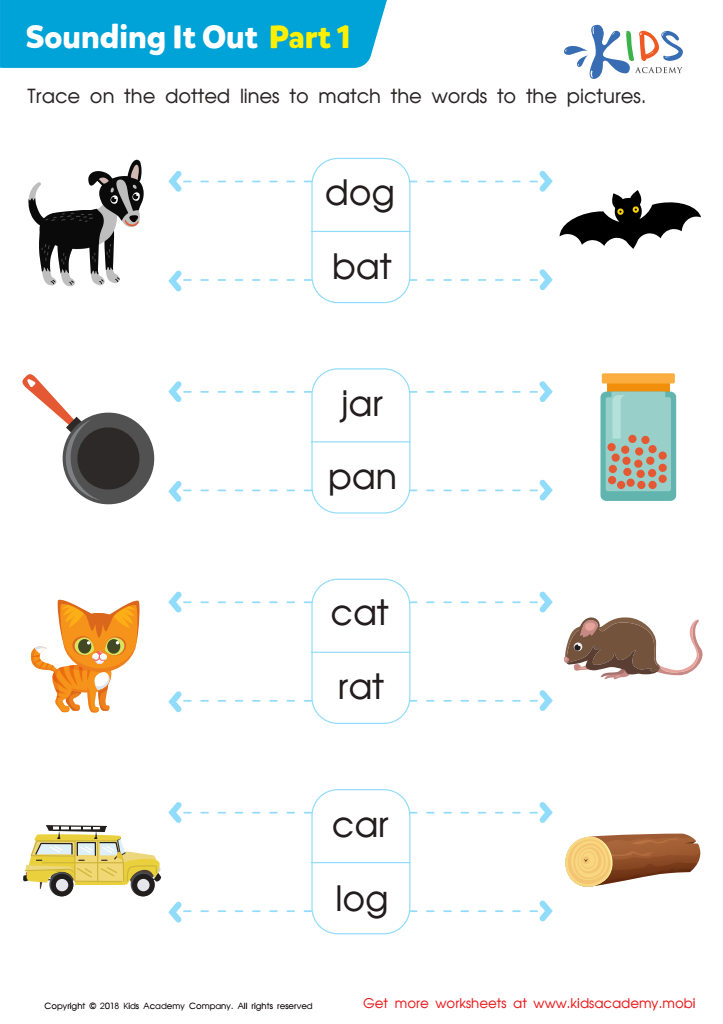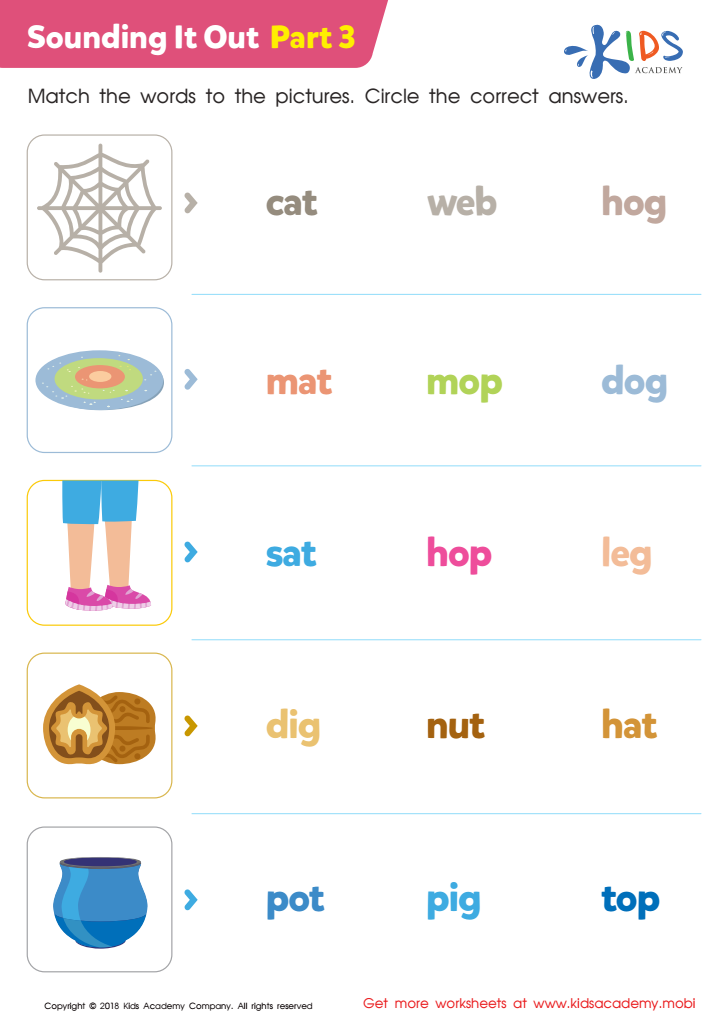Phonics Skills Normal Reading Worksheets for 6-Year-Olds
4 filtered results
-
From - To
Enhance your child’s reading abilities with our "Phonics Skills Normal Reading Worksheets for 6-Year-Olds." Our expertly designed worksheets focus on strengthening essential phonics skills, laying a solid foundation for fluent reading. With engaging exercises and age-appropriate activities, kids will improve their letter-sound recognition, blending, and decoding skills while having fun. Each worksheet aims to build confidence and nurture a love for reading, ensuring your child is well-prepared for future academic success. Start their journey towards reading mastery today with our comprehensive collection of phonics worksheets tailored specifically for 6-year-olds.


Long /u/ Words Worksheet


Sounding it Out: Part 1 Worksheet


Sounding it Out: Part 3 Worksheet


Long and Short E Worksheet
Phonics skills are crucial for the normal reading development of 6-year-olds, and both parents and teachers should prioritize them to lay a strong educational foundation. At this age, children are transitioning from recognizing letters to understanding how these letters form words, making phonics an essential part of this learning process. Phonics education helps young learners decode words by correlating sounds with letters or groups of letters, enhancing their ability to read independently and fluently.
Effective phonics instruction can significantly improve a child’s reading skills, making reading a more enjoyable and less arduous task. When children master phonics, they can independently tackle new words, promoting confidence and a positive attitude towards reading. This early success is vital because reading proficiency is closely linked to overall academic performance. Children who read well by the end of first grade often excel in other subjects since reading is integral to understanding math problems, comprehending science concepts, and following instructions in all areas.
Moreover, early phonics proficiency can prevent later difficulties such as reading disabilities, which can affect a child’s self-esteem and academic trajectory. Parents and teachers should therefore consistently engage children in phonics activities to ensure they are well-prepared for more complex literacy skills in the future.

 Assign to My Students
Assign to My Students





















